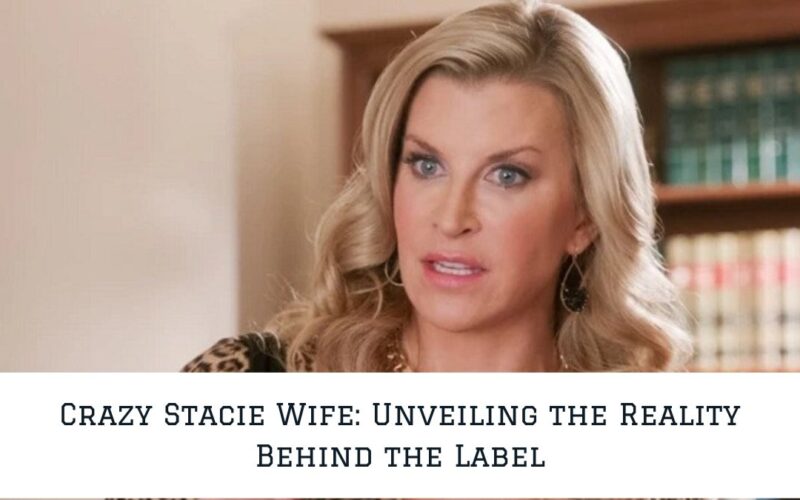The term “Crazy Stacie Wife” has become widespread in today’s linked society, causing many to wonder and speculate. By delving into its history, social effects, and the individuals whose lives are truly affected by the term, this article seeks to reveal the reality behind this phenomenon.
1. Introduction
Emerging and capturing our interest are trends, memes, and labels on the internet, which is like a huge playground. Popular labels include “Crazy Stacie Wife.” This isn’t only a memorable expression; it stands for a phenomenon in society and culture that warrants further examination.
2. Who is Crazy Stacie?
A better grasp of the Crazy Stacie Wife phenomenon may be achieved by exploring Stacie’s identity and the factors that contribute to her “crazy.” Is the term based on social criticism and fads, or does she exhibit eccentric behavior? Now, we will go into the storyline of Crazy Stacie.
3. Unraveling the Myth: Is Stacie Crazy?
What constitutes insanity is subjective and frequently impacted by cultural standards. A person’s idea of normalcy may be quite different from another’s. In this part, we explore the complexities of calling somebody “crazy” and we question if such labels are valid.
4. The Social Media Buzz
Anyone may become famous overnight in this era of social media. We’ll take a look at the memes, videos, and postings that helped Crazy Stacie gain internet fame and see how she became a popular subject.
5. Psychological Insights
Does the term “crazy” have any psychological underpinnings? In this part, we will explore the preconceptions around the word and look at how societal expectations affect mental health.
6. Behind Closed Doors: Stacie’s Story
Hearing Crazy Stacie tell her side of the tale will help us understand her better. Stories and stories from her own life will help readers better understand her point of view and put a face to her online character.
7. Media Influence on Perception
The media has a significant impact on how the public perceives issues. We’ll talk about the ethical issues with media depictions of Crazy Stacie and how they affect our perceptions of the character.
8. Navigating Relationships with “Crazy” Partners
Relationships with people who are considered “crazy” can be challenging, but this section offers advice on how to communicate, empathize, and comprehend to build strong bonds.
9. Breaking the Stigma: Mental Health Awareness
A conversation about mental health awareness can begin with the Crazy Stacie phenomenon. This section offers tools for getting professional treatment and supports the goal of reducing the stigma associated with mental health difficulties.
10. The Power of Labels
For better or worse, labels have the power to influence lives. This part reflects on the effects of labels and makes a plea for compassion and tolerance in a judgmental society.
11. Crazy Stacie Phenomenon: A Cultural Perspective
When labels are made, cultural aspects are quite important. We’ll talk about the larger societal ramifications of Crazy Stacie and how cultural stereotypes play a role in it.
12. The Evolution of Internet Phenomena
How can viral videos like Crazy Stacie get so famous on the internet? In this part, we examine the interplay between online trends and their offline effects, casting doubt on the delineation between the two realms.
13. Empowering Individuals
Amid cultural judgments, we will tell tales of individuals who have overcome labels, empowering them and inspiring self-acceptance.
14. Conclusion
Finally, the Crazy Stacie Wife craze is a multi-faceted interaction between public perception, internet fads, and personal narratives. If we want to encourage empathy and dismantle prejudices, we must first understand the individual behind the label.
15. FAQs
1. What is the origin of the term “Crazy Stacie”?
The Crazy Stacie Wife phenomenon may have been inspired by the term’s origins in internet trends and viral videos.
2. How does social media contribute to the perception of individuals as “crazy”?
The way Crazy Stacie is portrayed is only one example of how social media can amplify narratives and accentuate particular attributes, shaping public opinion.
3. Can someone labeled as “crazy” change public opinion?
Although it may be difficult, talking about personal experiences and critiquing stereotypes can help change how others see things.








